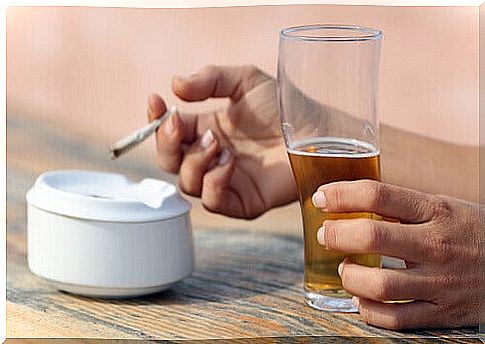Sleeping Well: Beyond The Night
Sleeping well is essential for the body to function at its best. When we cannot do it, we tend to seek and apply rest strategies focused on the moment before the act of sleeping. However, what happens during the day influences as much, if not more, what happens at night.
Why do we need a good night’s sleep?
Sleep is a fundamental physiological process designed to maintain the proper functioning of the body. It is a biological need whose objectives are:
- Restore cellular energy stores for cells to oxygenate and regenerate.
- Restore the homeostasis of the central nervous system and the rest of the body tissues so that they can preserve health and return to function at full capacity.
According to this, it is known that sleeping well is essential, among other things, to:
- Regulate emotions.
- Regulate the internal temperature.
- Maintain a healthy heart.
- Maintain an optimal body weight.
- Optimize hormone production.
- Ensure adequate learning and memory processes.

What if I don’t?
From the above, we can understand that when we do not get a good night’s sleep, cells weaken and the body begins to fail. This loss of functionality is expressed by the appearance of:
- Feeling of loneliness
- Tiredness and weakness
- Increase in body fat.
- Blurred vision and photosensitivity.
- Depression, confusion, apathy, and irritability.
- Concentration, memory and learning deficits.
- Gastrointestinal problems (constipation, diarrhea, and accumulation of gas)
- Premature aging and reduced life expectancy.
Not sleeping well increases the risk of suffering from depression, anxiety, obesity, high blood pressure, cardiovascular accidents, cancer, diabetes mellitus, among other pathologies. In addition, it increases the risk of an accident.
Sleep well: daytime strategies
In general, when we do not sleep well, we tend to think, seek and apply measures related to the moment immediately before the act of sleeping.
However, we forget that what we do during the day “has a lot to do” with what happens at night. Next, we will tell you what you can do during the day to enjoy a proper night’s rest.
Set a sleep-wake schedule
When we cannot sleep well, we enter a vicious cycle in which we go to bed and get up very late. Therefore, one of the first steps to getting a good night’s sleep should be to set a bedtime and a wake-up time. I anticipate that the first day you will wake up with a horrible dream.
In this regard, it is important that the quality of sleep is high when it occurs between 23:00 h and 09:00 h. This means that, in order to maximize night rest, outside of this time slot we must be awake.
The reason is that in this time slot, sleep has the ideal metabolic conditions (release of brain neurotransmitters, core temperature, melatonin levels, metabolic rate and brain activity) to be produced properly.
In this line, we must know that the usual sleep-watch schedule should also apply during the weekends.
Although it is true that, for most people, these days are the time of greatest flexibility and festivity. Both characteristics make respecting the established schedule almost impossible. However, the more it differs from usual, the worse its impact on sleep for the rest of the week.

Increase physical activity
Most of those who do not get a good night’s sleep feel very tired during the day. And it is not in vain. The body needs energy to maintain vital functions and reduces the energy available for activities that are not important for survival.
Thus, we are forced to stick to those activities that are essential for us and carry them out “it becomes a world for us.” When night comes again, we have been so inactive during the day that we don’t feel like sleeping (we don’t need it).
Little by little, we alter the internal clock that regulates when we should sleep and when we should be active. The more insomnia, the more inactivity. The more inactivity, the more insomnia. In the end, we end up normalizing a sleep-wake pattern that is far from healthy.
Avoid naps
As we have been saying, it is essential that during the day we are awake and active so that during the night we are relaxed and asleep. That is why avoiding naps is a fundamental measure. Since the more you sleep during the day, the less you want to sleep at night, and vice versa.
However, after a bad night, naps may help. In fact, a study published by the Journal of Neurology in 2016 found that those who napped after having slept less than 7 hours during the night, improved survival by 20%.
Eat a varied diet
Maintaining an eating pattern with a wide variety of healthy foods contributes to a good night’s sleep. This is because we guarantee an adequate supply of those micronutrients that are necessary to maintain the integrity of the central nervous system and produce the appropriate neurotransmitters.
In this sense, the main objective is to ensure a sufficient intake of tryptophan (a precursor of serotonin – a wellness hormone – and melatonin – a sleep hormone), together with an adequate carbohydrate intake (it improves the bioavailability of tryptophan in the central nervous system ).
In addition, it is important to ingest omega 3, magnesium, zinc, calcium and group B vitamins, due to the relaxing action on the muscles and the participation in the correct formation of the neurotransmitters involved in sleep.
Avoid tobacco and alcohol during the hours before
Current research finds that smoking or drinking alcohol within 4 hours of bedtime disrupts the processes that occur while we sleep. As a result, we seem to wake up much more tired.
For its part, tobacco is an exciting substance and, therefore, activates the central nervous system. This is just the opposite of what should be happening during the last hours of the day. Since melatonin (sleep hormone) requires a certain state of relaxation to begin to release.
On the other hand, alcohol, although it is a depressant substance, when consumed during the last hours of the day, alters the REM phase of sleep – the stage in which it is decided which information to store and which to forget.

To sleep well, do not drink coffee after 5 pm
As for coffee, tea and cocoa, we know that they are also stimulating substances due to their content of caffeine, theine and theobromine, respectively. For this reason, after 5:00 p.m. consumption should be avoided.
However, this measure may not be sufficient, as some people can experience the arousal effects even twelve hours after ingesting them.
Avoid the use of electronic devices
The use of electronic devices during the 4 hours before sleeping is also inappropriate. The blue light from the screens activates the photoreceptors in the retina, sending the message to the brain that it is daylight.
In addition, it stimulates the same brain area that is activated when we are scared and this increases cortisol (stress hormone) inhibiting the production of melatonin (sleep hormone).
It goes without saying that health should be the most important thing but, if for some reason, it is impossible for you to do without your mobile phone, tablet or computer during the last hours of the day, go to the settings and activate the yellow screen light in all of them.
If you want to sleep well, do not exercise at the end of the day
The practice of physical exercise during the last hours of the day would increase the levels of cortisol (stress hormone) and, therefore, the inhibition of the release of melatonin. As we have already said, it is essential for the initiation and maintenance of sleep.
The best dinner to sleep well
The optimal dinner to promote a night’s rest is one that is low in fat, contains carbohydrates, is rich in protein, does not contain very spicy or sugary foods and is made before two hours before going to sleep.
The reason is that fat, sugar and spice hyperactivate the metabolism. And this is contrary to sleeping.
For its part, doing it within two hours prior to the start of sleep is essential so that, at the time of going to sleep, the body is working to the minimum necessary to achieve adequate sleep.
On the other hand, carbohydrates with a high glycemic index would generate an insulin peak that, in its proper measure, would help the inclusion of tryptophan within the CNS. This measure, due to the negative impact of overstimulating the pancreas to release insulin, would require a prior assessment of risks and benefits.
In addition, including foods rich in melatonin, such as cherries, oatmeal or banana, could reduce the time to fall asleep and maintain sleep.
In short, to sleep well, what we do during the day is important: get active, remove the presence of stimulants and eat healthy. At first it can be difficult to get used to the new lifestyle. However, once the routine is achieved, it becomes an ally to sleep well and live better.








